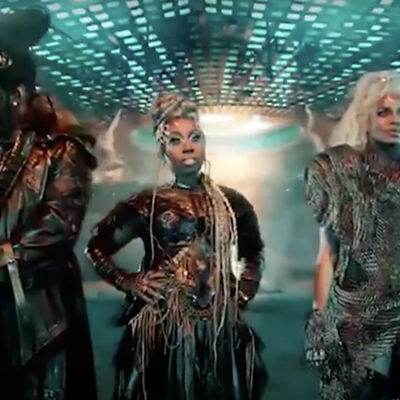Support Us
Houston's independent source of
local news and culture
account
- Welcome,
Insider - Login
- My Account
- My Newsletters
- Contribute
- Contact Us
- Sign out
[
{
"name": "Related Stories / Support Us Combo",
"component": "11591218",
"insertPoint": "4",
"requiredCountToDisplay": "4"
},{
"name": "Air - Billboard - Inline Content",
"component": "11591214",
"insertPoint": "2/3",
"requiredCountToDisplay": "7"
},{
"name": "R1 - Beta - Mobile Only",
"component": "12287027",
"insertPoint": "8",
"requiredCountToDisplay": "8"
},{
"name": "Air - MediumRectangle - Inline Content - Mobile Display Size 2",
"component": "11591215",
"insertPoint": "12",
"requiredCountToDisplay": "12"
},{
"name": "Air - MediumRectangle - Inline Content - Mobile Display Size 2",
"component": "11591215",
"insertPoint": "4th",
"startingPoint": "16",
"requiredCountToDisplay": "12"
}
,{
"name": "RevContent - In Article",
"component": "12527128",
"insertPoint": "3/5",
"requiredCountToDisplay": "5"
}
]
When the calendar hits April 20, thoughts turn to man's other best friend: the marijuana plant. Yes, along with copious amounts of Reese's Pieces and trips to the nearest Jack in the Box drive-thru, almost everyone agrees nothing goes better with the reefer than reggae. (Personally, give us Sleep's Dopesmoker, Adult Swim on the TiVo and some chicken strips.)
Invariably, when most people think about reggae, Bob Marley comes to mind. No doubt he was one of the best ambassadors of the genre to a world that was unfamiliar with the island rhythms and relaxed lifestyle. Possessing Marley's greatest-hits compilation Legend is actually required for admission to the University of Texas.
But there is an entire universe of reggae out there, and as with the sticky icky icky, there are vast and varied strains of it floating around, including many that make fuller and stronger alternatives to Marley's work. We love Marley on sunny afternoons in the backyard or chillaxing by a pool, but quite frankly, he's vastly overrated.
To people with tapestries of Bob in their dorm windows, those are fighting words. But to fully grasp the scope of such a thing as reggae, one must branch out from Marley's warm and fuzzy cocoon.
Legend has sold nearly 20 million copies worldwide, yet it's often criticized for only leaning on Brother Bob's later popular work and not his early stuff with Peter Tosh and Bunny Livingston (aka Bunny Wailer).
Tosh was an early Marley associate; in our minds he was vastly more groundbreaking than his more popular onetime Wailers bandmate. Pick up his menacing LPs Legalize It and Equal Rights for an introduction; the snarl in Tosh's voice and guitar that is infinitely more interesting than Marley's good-time croon. Tosh wasn't as commercial as Marley proved to be, but he surpassed him when it came to attitude and pain.
Many people fail to realize that as sunny as Marley's songs were, his homeland of Jamaica was the exact opposite. While it's a beautiful and exotic locale, the country was rife with cutthroat politics and virulent criminals, so much so that when white artists like the Rolling Stones would head to Jamaica to record in the mid-'70s, they would have to hire street toughs as security muscle and pay out protection bribes just to be able to safely walk the streets.
Also, for anyone looking to see exactly what sort of world bore reggae, look no further than Perry Henzell's 1972 epic The Harder They Come. Starring another underrated reggae giant, Jimmy Cliff, it's an unflinching account of criminal life in the Jamaican capital of Kingston.
The soundtrack is a period gem and both the film and the music hold up incredibly well. It's sort of like a Jamaican Scarface, with way better music and without that pesky drip in the back of your throat.
KEEP THE HOUSTON PRESS FREE...
Since we started the Houston Press, it has been defined as the free, independent voice of Houston, and we'd like to keep it that way. With local media under siege, it's more important than ever for us to rally support behind funding our local journalism. You can help by participating in our "I Support" program, allowing us to keep offering readers access to our incisive coverage of local news, food and culture with no paywalls.
Craig Hlavaty
Contact:
Craig Hlavaty
Trending Music
- Top 10 Butt-Rock Bands of All Time
- The Marías Go Deep in Concert
- Houston Concert Watch 7/24: Zach Bryan, Koe Wetzel and More
-
Sponsored Content From: [%sponsoredBy%]
[%title%]

Don't Miss Out
SIGN UP for the latest
Music
news, free stuff and more!
Become a member to support the independent voice of Houston
and help keep the future of the Houston Press FREE
Use of this website constitutes acceptance of our
terms of use,
our cookies policy, and our
privacy policy
The Houston Press may earn a portion of sales from products & services purchased through links on our site from our
affiliate partners.
©2024
Houston Press, LP. All rights reserved.





